
12/08/2021 - Press release
A study led by doctors and researchers from Hospital del Mar, the Hospital del Mar Medical Research Institute (IMIM), and CIBER Oncology (CIBERONC) has demonstrated the role a protein, neuregulin, plays in generating resistance to the most common treatment for HER2-positive breast cancer, one of the most aggressive types. The study, published in the journal Clinical Cancer Research, and in which leading Italian researchers Luca Gianni from the Fondazione Gianni Bonnadonna and Giampaolo Bianchini from the IRCCS Ospedale San Raffaele have collaborated, has identified that in patients with high levels of this protein, the success rate with the monoclonal antibody trastuzumab, the first-line drug, drops. Conversely, when combined with another monoclonal antibody, pertuzumab, the situation is reversed and full pathological response levels are restored.
06/08/2021 - Press release
A Hospital del Mar project to determine new prognostic and predictive markers that could be beneficial in metastatic small cell lung cancer treatment, using genetic analysis techniques, has been awarded $200,000 from the Oncomine Clinical Research Grant programme, promoted by the US-based multinational biotech company Thermo Fisher Scientific, which supports research that enables advances in the field of molecular patient profiling, with the aim of improving clinical outcomes. The research was led by Dr. Edurne Arriola, head of the lung cancer section in the Medical Oncology Service and a researcher at the Hospital del Mar Medical Research Institute (IMIM), and Dr. Beatriz Bellosillo, head of the Medical Oncology Service and also an IMIM researcher. To undertake the project, they will analyse samples from 300 patients with this pathology, collected over the last 10 years. The research will focus on evaluating the potential of the liquid biopsy technique, which can detect DNA from tumour cells in the blood, to monitor the disease and its evolution, as well as detecting potential biomarkers of treatment benefit and predictors of long-term prognosis.
Més informació "$200,000 grant for lung cancer research at Hospital del Mar"
28/07/2021 - General information

On July 19 the Barcelona Biomedical Research Park (PRBB) launched a new science outreach product, "La mare de la ciència", a podcast in Catalan where you can "listen to science" done at the Park. During the second half of July the six episodes that make up the first season will be released. Today, July 28th, the podcast of Toni Celià-Terrassa, group leader of the Cancer Stem Cells and Metastasis Dynamics group at the IMIM, will be launched and will help us to decipher metastasis. This is a narrative podcast in short format, where Marta Vila, from the PRBB's communication department, leads us through the research and stories of six researchers from the Park's centres. A very personal and close look to the science that is done in the PRBB and the people behind it.
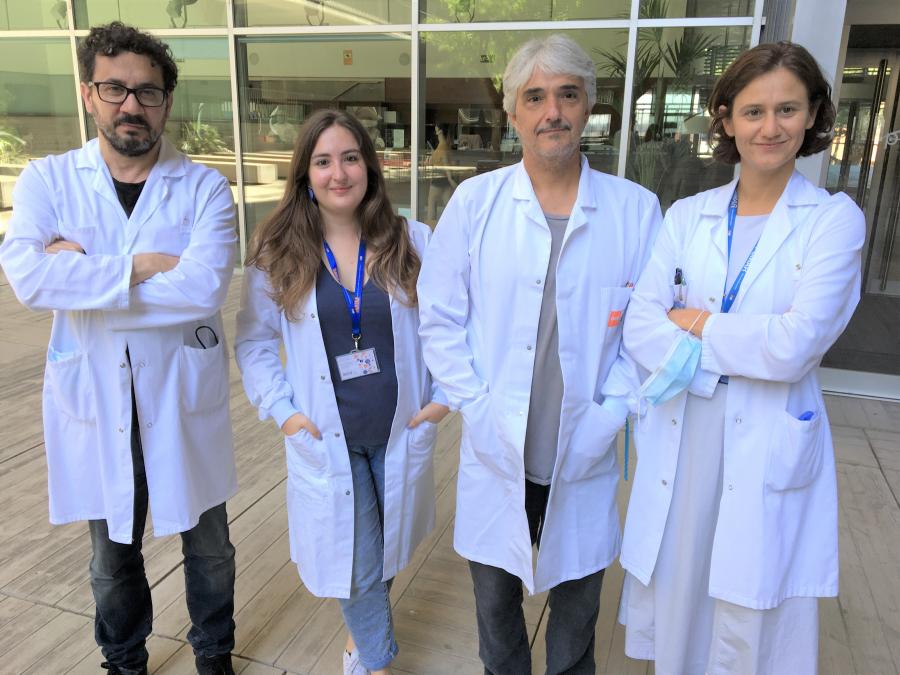
Combining chemotherapy with a BRAF oncogene inhibitor proves effective at treating this disease. The study, published in the journal Oncogene, was led by researchers from the Hospital del Mar Medical Research Institute, Hospital del Mar and CIBERONC. This alternative paves the way towards a new approach for patients affected by this type of tumor, which has no cure in the most advanced stages or cases of relapse.
Més informació "A new approach to metastatic melanoma discovered"
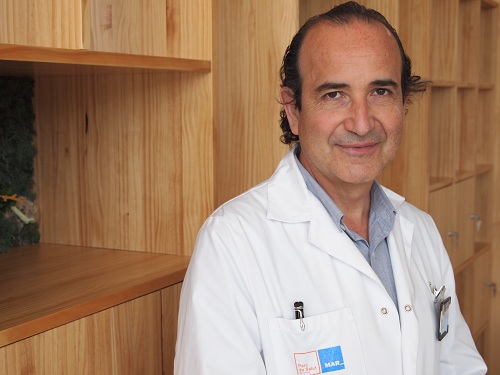
Dr Joan Albanell, head of the Medical Oncology Department at Hospital del Mar and director of the Cancer Research Programme at the Hospital del Mar Medical Research Institute, is one of the authors of the first article to come out of this study, in which more than sixty hospitals from eleven European countries are taking part. The work, published in the prestigious journal Cancer Discovery, is an important step in understanding the molecular changes that lead to metastasis in breast cancer.
21/06/2021 - Press release
As a result of the collaboration between research centres in Italy and Spain, the PEGASUS study has been launched with the aim of demonstrating that, thanks to the liquid biopsy guidance tool, it is possible to increase the precision of post-surgical treatment for colon cancer patients. The Vall d'Hebron Institute of Oncology (VHIO), part of the Vall d'Hebron Campus, and the Hospital del Mar Medical Research Institute (IMIM), both in Barcelona; and the INCLIVA Health Research Institute at Hospital Clínico in Valencia, are the three Spanish centres taking part in this project. The study was instigated by Dr. Silvia Marsoni, from the FIRC Institute of Molecular Oncology (IFOM) in Milan, and is supported by the AIRC Foundation within the 5x1000 programme, which is coordinated by Prof. Alberto Bardelli of the University of Turin and the Institute of Candiolo FPO-IRCCS.
19/05/2021 - Press release
Liquid biopsy can predict which patients with localised rectal cancer are likely to relapse, even after initial chemotherapy and radiotherapy treatment, and prior to surgery. This is supported by a study led by doctors and researchers from the Medical Oncology and Pathology Departments at Hospital del Mar, as well as the Hospital de Mar Medical Research Institute (IMIM) and the CIBER in cancer (CIBERONC), which has been published in the American Association for Cancer Research journal, Clinical Cancer Research. The study analysed samples from 72 patients from twenty hospitals in Spain, taken as part of the GEMCAD1402 clinical trial conducted by the Spanish Multidisciplinary Group on Digestive Cancer.
Més informació "Liquid biopsy can predict relapse in patients with locally advanced rectal cancer"
17/05/2021 - General information
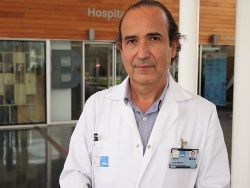
The head of the Medical Oncology Service and director of the Cancer Research Programme at the Hospital del Mar Medical Research Institute is one of the most outstanding specialists among Catalan oncologists. The Governance and Economics Coordinates Institute has just published its TOP 100 ranking of the best doctors working in Catalan hospitals, both public and private. Dr. Joan Albanell, head of the Medical Oncology Department at Hospital del Mar, features among the top ten specialists in the oncology section.
13/05/2021 - Press release
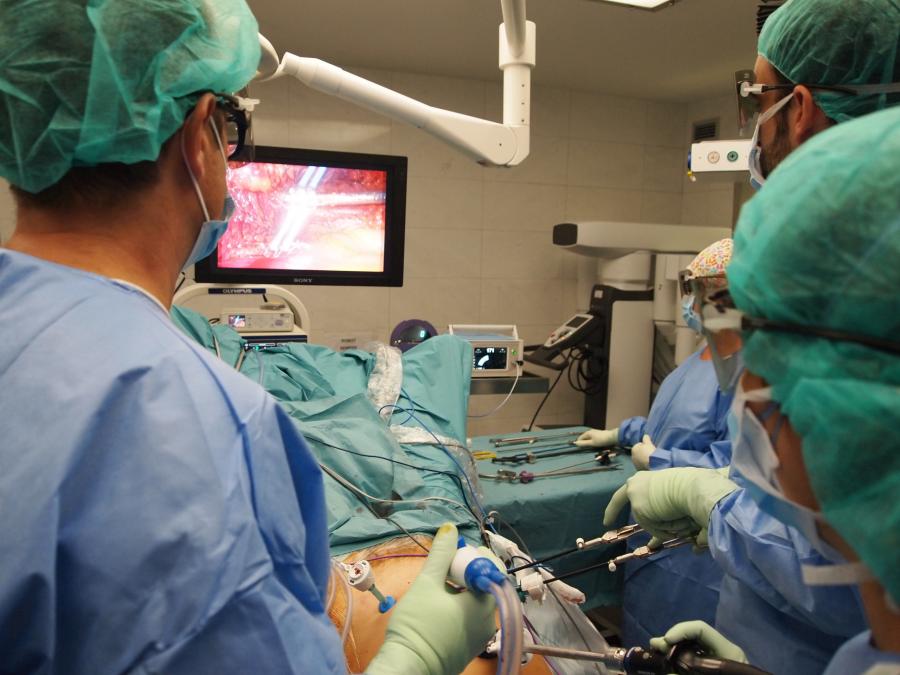
Hospital del Mar-IMIM is leading an international clinical trial to evaluate the performance and suitability of new equipment for locating the sentinel lymph node in prostate cancer patients. The new tool is a flexible, miniaturized probe, which should improve the detection of a marker (a radioactive molecule) injected into the patient to locate the first node the tumour drains to. The technology SENSEI®, has been developed by the UK company Lightpoint Medical with the support of the Hospital del Mar Urology Service.
12/05/2021 - General information
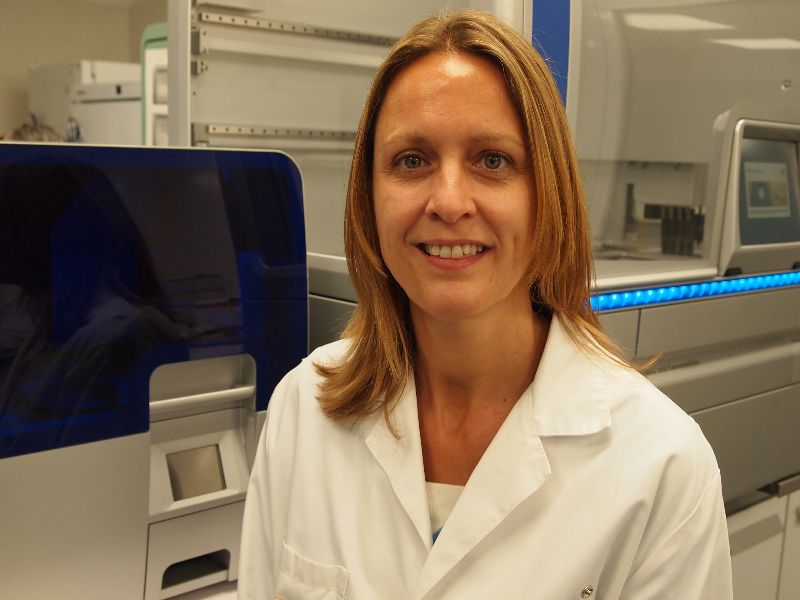
Montagut has been invited to be part of the group of experts who will draft the European Society of Medical Oncology recommendations on the appropriate use of this technique and its implementation in clinical practice. The head of the Digestive Oncology section in the Medical Oncology Service at Hospital del Mar and researcher at the Hospital del Mar Medical Research Institute (IMIM), Dr. Clara Montagut, will be a co-author of the ESMO recommendations for the use of liquid biopsy in cancer patients. The project is led by Professor Nicholas Turner, from the Institute of Cancer Research in London. The initiative is one of the tasks of the organisation's Translational Research and Precision Medicine Working Group.
© Institut Hospital del Mar
d'Investigacions MèdiquesLegal Notice and Privacy Policy | Cookie Policy | Site Index | Accessibility | Find Us | Contact